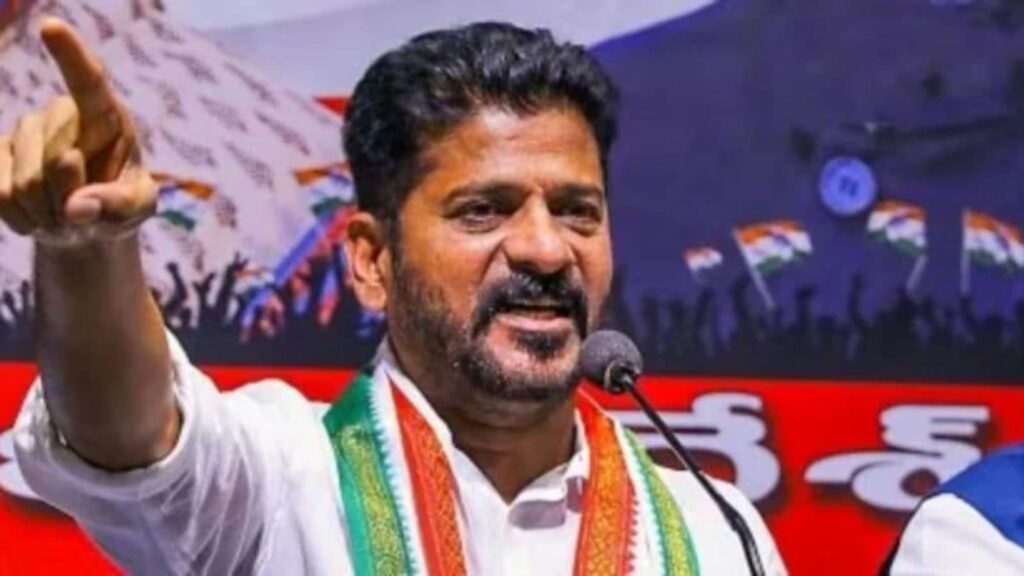October 18, 2025 04:51 PM IST
First published on: Oct 18, 2025 at 04:51 PM IST
The Chief Minister A Revanth Reddy-led Congress Cabinet in Telangana decided Thursday to do away with the state’s two-child rule in local body polls “in view of effective population control in the state”. As per this rule, people with more than two children were not allowed to contest in the local body elections in the state.
The Telangana State Election Commission has announced the local body polls in three phases to be held on October 31, November 4, and November 8. The polls will cover all 31 districts, encompassing 565 mandals and 565 Zilla Parishad Territorial Constituencies (ZPTCs). As many as 5,749 Mandal Parishad Territorial Constituencies (MPTCs), 12,733 gram panchayats (GPs), and 1,12,288 urban wards are headed to these polls.
Why was the two-child norm introduced?
The two-child policy was rolled out after it was found that population control measures between the Censuses of 1981 and 1991 were not yielding the expected results.
“India, at the time, was trying to control its population growth and the intra-Census data revealed that we were not on the right track,” said Srinivas Goli, demographer and associate professor at International Institute of Population Sciences, Mumbai.
These “unexpected” results led the National Development Council (NDC) to set up a committee chaired by then Kerala chief minister K Karunakaran. The panel recommended that people with more than two children should not be allowed to hold government posts, from the panchayat level upwards. The recommendations, submitted to the NDC, were subsequently adopted by various states.
Which states adopted the policy?
Rajasthan became the first state to adopt the “two-child policy” at the panchayat level in 1992, followed by then undivided Andhra Pradesh and Haryana in 1994.
Odisha introduced the policy for local bodies in 1993 and extended it to the block panchayat level in 1994. While Chhattisgarh, Himachal Pradesh, and Madhya Pradesh introduced the policy in 2000, Maharashtra, Gujarat, Bihar, and Assam enforced it in 2003, 2005, 2007 and 2017, respectively. The policy came into force in Uttarakhand in 2019 while the Union Territories (UTs) of Dadra and Nagar Haveli and Daman and Diu adopted the policy in 2020.
Why was the policy rescinded in some states?
Of the 13 states and UTs that adopted the policy, Chhattisgarh, Haryana, Himachal Pradesh, and Madhya Pradesh rolled it back in 2005.
Andhra Pradesh rescinded the policy in November 2024 through the Panchayat Raj (Amendment) Bill, 2024 and the AP Municipal Laws (Amendment) Bill, 2024.
“A key reason for going back on the policy was the worsening sex ratio at birth (SRB), which declined to 880 women for every 1,000 men between 2003 and 2005,” Goli said. Demographers in part attributed the steep decline in the SRB to the strict two-child policy, as well as widespread access to pre-natal diagnostic technology for sex detection.
Another reason for rolling back the two-child norm was the National Population Policy that came into force in 2000 and deviated from the previous target-driven approach of population control. “National Population Policy in 2000 advocated a target-free approach and protection of reproductive rights,” Goli said.
Why did Telangana withdraw the policy?
Holding that the ageing population could adversely affect the state, the Revanth Reddy Cabinet said that couples must be encouraged to have more children. Revenue minister Ponguleti Srinivas Reddy said the Cabinet felt the norm was “outdated and impractical”. It disqualified individuals with more than two children from contesting local body elections. “There is no need for this norm anymore. Even the neighbouring state of Andhra Pradesh has scrapped the policy,” he said.
The Congress government would now bring amendments to the Telangana Panchayat Raj Act, 2018, Zilla Parishad Territorial Constituencies (ZPTCs), Mandal Parishad Territorial Constituencies (MPTCs), and the Telangana Municipalities and Municipal Corporations Act to provide for necessary changes in the wake of its decision to roll back the policy. An ordinance is also likely to be promulgated soon to ensure it before the Bills are brought.


